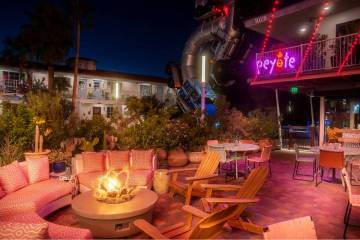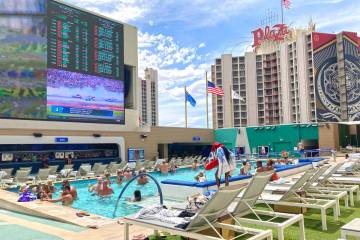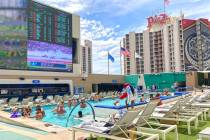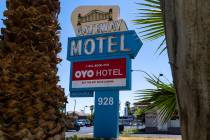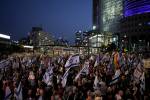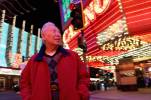The Ethiopian Community Development Council African Community Center offers services to refugees
When people enter the United States as refugees, they can get help from organizations that have been established to help them settle into American life.
The African Community Center, a branch of the Ethiopian Community Development Council at 4310 S. Cameron St., has operated in Nevada since 2003 and offers services to people from across the globe.
"We are one of 10 or so agencies nationwide that helps resettle refugees," said Berihun Teferra, the managing director of the ECDC African Community Center. "Our focus is resettlement for those legally admitted in the country."
According to the Ethiopian Community Development Council, a refugee is a person who is outside his country of origin because of fear of persecution for race, religion, nationality or political opinion and who is unable or unwilling to return to that country.
The United Nations High Commissioner for Refugees estimated that there were 10.5 million refugees in 2011, which doesn't factor in the number of internally displaced and stateless people. Each year, an estimated 75,000 refugees are admitted into the United States.
Teferra said the organization helps an average of 400 refugees a year settle in southern Nevada.
People can come from just about any country, but there is a predominance of refugees from Iran, Iraq, the Democratic Republic of Congo, Burma, Cuba, Eritrea and Bhutan.
"Those are our major ones," Teferra said.
The organization provides resources such as classes that prepare people for jobs, English as a second language services, housing services and economic development such as down payment assistance.
Teferra said the organization also helps connect refugees with social service programs such as welfare; Temporary Assistance of Needy Families ; Women, Infants and Children ; or S ection 8 housing.
Refugees can get help obtaining a green card or filling out an I-94 form, which is issued to people admitted to the United States in a nonimmigrant visa status.
Caseworkers at the center help each person attain self-sufficiency.
"We are with them until they are no longer getting assistance from the government," Teferra said.
Part of being self-sufficient is that people must be employed. Because of the economy, Teferra said it has been increasingly harder to find jobs for refugees.
"We had to redouble our efforts," Teferra said. "We had to really reach out to the community and the employees who have been generous in offering our clients jobs. We are very grateful to them."
The center also works with clients to get them ready to interview with prospective employers.
"We coach them," Teferra said. "We teach them how to dress in an interview. We tell them what things to say and what things to not say."
Teferra said the center doesn't directly teach English. Instead, it partners with other agencies, such as Catholic Charities of Southern Nevada, that offer programs in English as a second language.
If this program didn't exist, Teferra said he doesn't know what would happen to many of the refugees .
"It is hard to imagine," Teferra said. "They would probably be left on their own or forced to return to a country that was probably persecuting them."
Teferra said many might commit suicide.
"If they don't have any other option, they would probably prefer to die," Teferra said.
For more information, visit acclv.org.
Contact Henderson/Anthem View reporter Michael Lyle at mlyle@viewnews.com or 387-5201.





